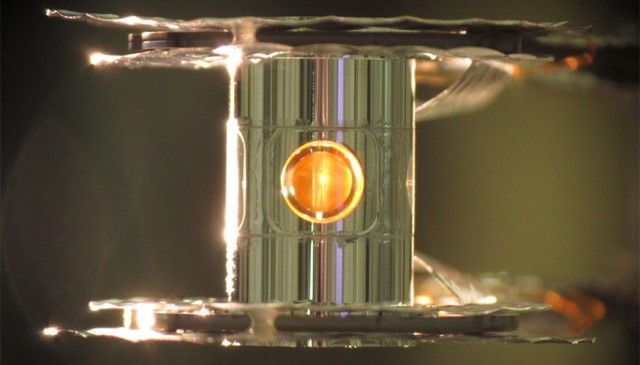Physicists in England claim they have discovered how to create matter from light, by smashing together individual massless photons– a feat that was first theorized back in 1934, and has been considered practically impossible until now. If this new discovery pans out, the final piece of the physics jigsaw puzzle that describes how light and matter interact would be complete. No one’s quite sure of the repercussions if matter can indeed be produced from photon-photon collision, but I’m sure something awesomely scientific will emerge before long.
Way back in 1930, British theoretical physicist Paul Dirac theorized that an electron and its antimatter counterpart (a positron) could be annihilated (combined) to produce two photons. Then, in 1934, two physicists — Breit and Wheeler — proposed that the opposite should also be true: That two photons could be smashed together to produce an electron and positron (a Breit-Wheeler pair). In other words, that light can be converted into matter, and vice versa — or, to phrase it another way, E=mc2 works in both directions. This would close one of the last gaps in particle physics that has been theorized, but has proven very hard to prove through observation.
